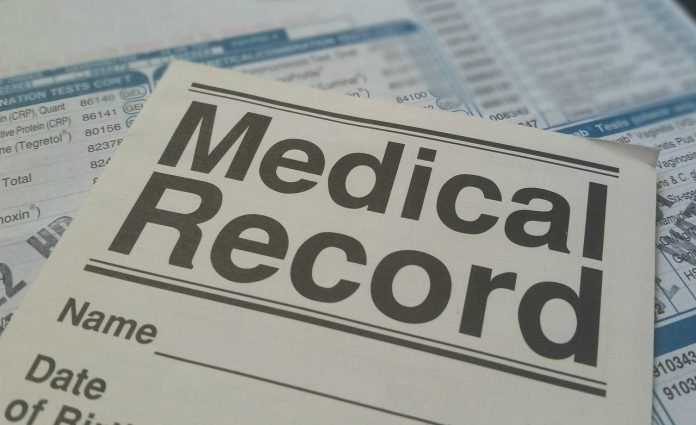Medical identity theft is when a thief uses your name or health insurance numbers to see a doctor, get prescription drugs, even file claims with your insurance provider. If the thief’s health information is mixed with yours, your treatment, insurance and payment records, and credit report could be affected.
If you see signs of medical identity theft, visit IdentityTheft.gov to report and recover from identity theft.
How to Detect Medical Identity Theft
Always read your insurance statements and Explanation of Benefits (EOB) thoroughly. If there’s fraud on your record, this will show you the warning signs of identity theft.
Read the Explanation of Benefits (EOB) statement or Medicare Summary Notice that your health plan sends after your treatment.
- Check the name of the provider
- Check the date of service
- Review the service provided.
Mae sure the claims paid match the care you received? If you see a mistake, contact your health plan and report the problem.
Other signs of medical identity theft include:
- You receive a bill for medical services you didn’t receive
- You get a call from a debt collector about a medical debt you don’t owe
- There are medical collection entries on your credit report that you don’t recognize
- You get a notice from your health plan saying you reached your benefit limit
- The insurance provider or health plan sends you a denial of insurance because your medical records show a condition you don’t have.
Correcting Mistakes in Your Medical Records
Get Copies of Your Medical Records
If you know a thief used your medical information, get copies of your records.
Federal law gives you the right to know what’s in your medical files. Check them for errors and contact each pharmacy, clinic, doctor, hospital, laboratory, and location where the thief may have used your information.
A provider might refuse to give you copies of your medical or billing records because it thinks that would violate the identity thief’s privacy rights. The fact is, you have the right to know what’s in your file.
If a provider denies your request for your records, you have a right to appeal. Contact the person the provider lists in its Notice of Privacy Practices, the patient representative, or the ombudsman. Explain the situation and ask for your file. If the provider refuses to provide your records within 30 days of your written request, you may complain to the U.S. Department of Health and Human Services’ Office for Civil Rights.
Ask each of your health plans and medical providers for a copy of the “accounting of disclosures” for your medical records. The accounting is a record of who got copies of your records from the provider. The law allows you to order one free copy of the accounting from each of your medical providers every 12 months.
The accounting includes details about:
- what medical information the provider sent
- when it sent the information
- who got the information
- why the information was sent
Ask for Corrections
Contact, in writing, your health plan and medical providers and explain which information is not accurate. You’ll need to send copies of the documents that support your position. A good way is to include a copy of your medical record and circle the disputed items, then ask the provider to correct or delete each error. Always keep the original documents.
Send your letter by certified mail, return receipt, so you have a record of what tou send and that they’ve received it. Keep copies of the letters and documents you sent.
The health plan or medical provider that made the mistakes in your files must make corrections to the incorrect information. They should also inform labs, or other health care providers, along with anyone else that might have gotten wrong information.
If a health plan or medical provider won’t make the changes you request, ask it to include a statement of your dispute in your record.
Correcting Errors in Your Medical Records
- Contact each health care provider and ask for copies of your medical records.
- Complete the request form and pay any fees required to get copies of your records.
If your provider refuses to give you copies of your records because it thinks that would violate the identity thief’s privacy rights, you can appeal. Contact the person the provider lists in its Notice of Privacy Practices, the patient representative, or the ombudsman. Explain the situation and ask for your file. If the provider refuses to provide your records within 30 days of your written request, you may complain to the S. Department of Health and Human Services Office for Civil Rights.
- Complete the request form and pay any fees required to get copies of your records.
- Review your medical records and report any errors to your health care provider.
- Write to your health care provider to report mistakes in your medical records.
- Include a copy of the medical record showing the mistake.
- Explain why this is a mistake and how to correct it.
- Include a copy of your police report or Identity Theft Report.
- Send the letter by certified mail and ask for a return receipt. Your health care provider should respond to your letter within 30 days. It must fix the mistake and notify other health care providers who may have the same mistake in their records.
- Notify your health insurer and all three credit bureaus.
- Send copies of your police report or Identity Theft Report to your health insurer’s fraud department and the three nationwide credit bureaus.
- Order copies of your credit reports if you haven’t already.
- Consider placing a fraud alert or a security freeze on your credit reports.
- Update your files.
- Record the dates you made calls or sent letters.
- Keep copies of letters in your files.









